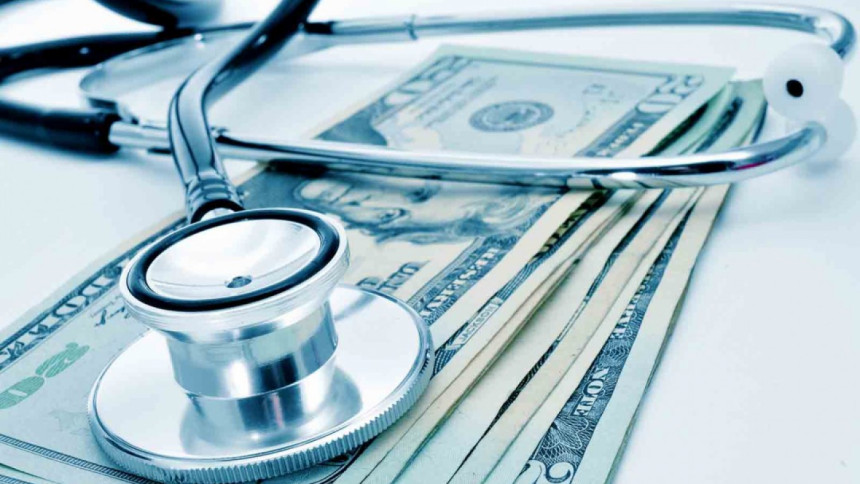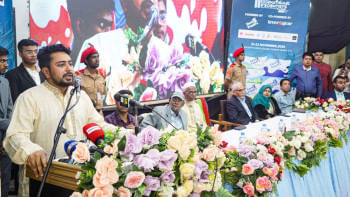Silent on rising healthcare cost

The health budget proposed yesterday did not address the issue of rising expenditure of healthcare in the country that forces some four to five million people into poverty every year, analysts said.
They said the burden of non-communicable diseases, including cancer, kidney and heart diseases, has been increasing rapidly in the country.
Such a situation demands rigorous programmes for prevention facilities, including early screening of diseases, improved lifestyle and availability of clean air and water, according to experts.
They also pointed out that poor healthcare management in the public hospitals and lack of regulations in the private hospitals are the two areas that need serious attention.
However, none of these issues were discussed in the budget speech of Finance Minister AHM Mustafa Kamal.
For the fiscal year 2019-20, the minister proposed an allocation of Tk 25,733 crore for the health sector, that amounts to 4.9 percent of the total budget, a slight decrease from 5 percent in the current budget.
About 60 percent of the allocation is revenue budget while the rest is meant for development.
A major portion of the development budget will be spent on establishing new hospitals, medical colleges and related facilities.
According to the proposed plan, eight new medical colleges will be established across the country. Nephrology units and kidney dialysis centres will be set up at all government medical college hospitals and district sadar hospitals.
The plan also includes establishing cancer treatment units in all medical college hospitals at the divisional level.
Besides, there are plans for establishing Institutes of Nuclear Medicine and Allied Sciences at the campuses of eight medical college hospitals, and establishing a medical university in each division. The government has also undertaken steps to recruit as many as 9,792 medical officers.
Ehteshamul Huq Choudhury, secretary general of Bangladesh Medical Association (BMA), said setting up more medical colleges and hospitals is essential, but this requires a significant increase in budgetary allocation.
He said they had expected the health budget to be at least 8 percent of the total budget. According to the World Health Organisation, an ideal health budget should be 15 percent of the total budget.
"Nutrition of mother and child, safe delivery and childcare are some of the most important aspects of healthcare. We haven't seen any provision in the budget proposal to facilitate these aspects," he added.
Even the school health programme, which is an important component of improved lifestyle and food habit, was not mentioned in the proposed budget, Ehteshamul added.
Mahbub Elahi Chowdhury, acting head of Universal Health Coverage Programme at the icddr,b, said governance is currently the most important aspect of Bangladesh's health sector.
"There are doctors posted at the upazila level hospitals. But when you go there, you don't find them. So, people don't go there," he said.
Such a dismal situation in the public medical facilities push them to avail services from the private hospitals at a higher cost.
Many people even have to sell their land and other properties to finance their treatment.
According to a study conducted by the health ministry in 2015, out of pocket expenditure (OOP) in Bangladesh is 67 percent of the total healthcare expenditure which is highest in the South and the Southeast Asia.
OOP refers to the expenses that a patient or the family has to pay directly to the health care provider, without a third-party (insurer or State), Mahbub said.
Reducing the OOP should be major concern of the government to achieve universal health coverage. However, the proposed budget did not mention anything about this issue.
Mahbub also claimed the allocated money for health sector cannot be utilised fully due to the existing inefficient system.
"Unless that's changed, mere increase in allocation won't help," he added.


 For all latest news, follow The Daily Star's Google News channel.
For all latest news, follow The Daily Star's Google News channel. 



Comments